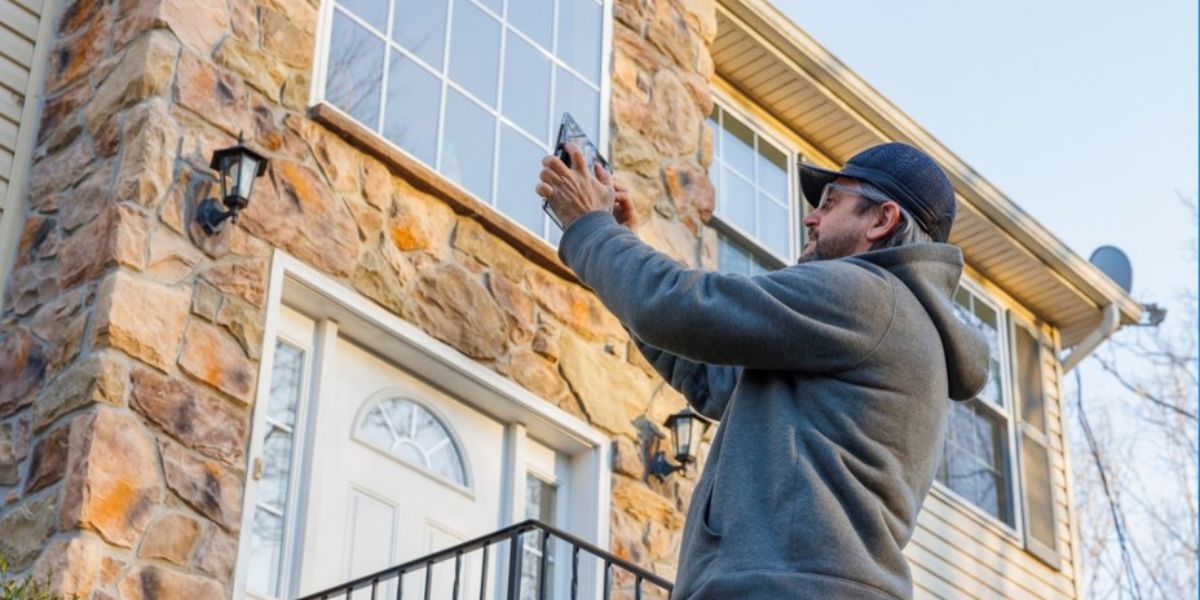A contentious new provision in a broad state house bill is highlighting an often disregarded, even ignored, element of the homebuying process: home inspection contingency clauses.
Comprising over 50 projects, it is part of a $5 billion housing bill that will help Massachusetts one step closer to outlawing sellers from accepting offers that exempt the home inspection condition.
For purchasers wanting to stand out in multiple-offer situations in the ultracompetitive markets of the Northeast, especially in cities like Boston, waiving a home inspection contingency has become normal practice. But doing this could expose homebuyers—especially first-timers—to a house with problems or repairs they are unable to cover.
Although some agents claim it eliminates negotiating tools, the regulation seeks to level the playing field for these purchasers by requiring home inspections.
What the new law states?
Beginning October 15, 2025, the new rule will forbid sellers and their representatives from accepting an offer should they have prior knowledge of the buyer intending to renounce their right to a house inspection. Part of the state’s historic Affordable Homes Act, the law is under praise by the Healey-Driscoll government as among the best homebuyer protection measures in the nation.
If buyers so want, they are still free to avoid an inspection; but, under the new guidelines, that decision cannot be urged or conditioned by the seller or their agent. The rule also mandates that sellers give purchasers a separate disclosure document declaring that their offer will not be assessed depending on their decision to have a house inspection.
“This new regulation creates a fairer, more even playing field for buyers and sellers,” stated Housing Secretary Ed Augustus in a press statement. “Homebuyers have to be able to make wise financial decisions and see clearly any necessary repairs or safety concerns that could develop.”
Including issues raised by real estate brokers and consumer advocates, the state’s Executive Office of Housing and Livable Communities included more than 100 public comments into their final form of the rule. Although it still permits conventional negotiated terms like repair thresholds, the legislation also makes clear that contracts cannot include language that compromises the efficacy of inspections, such as asking buyers to waive their deposit in the event of substantial repair findings.
The ban does not apply to any sale closing before mid-October, therefore allowing the industry time to adjust. That provides educators, lawyers, and brokerages with a window to create the required training materials, disclosures, and forms to guarantee compliance.
President of the American Society of Home Inspectors’s New England Chapter, John Gallagher supports the measure and sees it as more about restoring what used to be a baseline expectation than about limiting the market.
“Inspections have been around since the late ’60s, and for that entire time, people would buy and sell homes. Home inspections were expected, and people got them; only in the last 15 [years] has this instrument of trying to waive your inspection right been deployed to a mass market of people used. “I believe it will just bring things back to their natural state, a healthy real estate market.”
For many Massachusetts homebuyers, waiving an inspection seemed like a harmless way to make their offer more competitive. But according to Gallagher, the consequences can be devastating.
In one case Gallagher recalls, a couple purchased a million-dollar home in a desirable part of Central Massachusetts only after they agreed to waive the home inspection.
“They never wanted to do it, but realized that this was the only way they were going to get this house,” Gallagher explains.
Just days after closing, before the movers even arrived, Gallagher was called in for a postpurchase inspection. What he found was catastrophic.
Almost immediately, Gallagher saw that the house had a crumbling foundation. The culprit was pyrrhotite, a naturally occurring mineral that causes concrete to expand and crack over time—an issue that has plagued homes across New England. It’s not covered by homeowners insurance, and most lenders won’t allow equity borrowing once it’s discovered.
The only fix was a complete foundation replacement—an intrusive and costly process that involves jacking the house up off the foundation to lay a new one.
“It could cost as much as $300,000 to remediate, and they haven’t even put their furniture in,” he says.
In another case, Gallagher inspected a recently flipped home that a young couple had purchased without an inspection. It looked pristine on the surface: fresh paint, modern fixtures, and updated finishes. But behind the cosmetic upgrades, the problems were severe.
“I discovered what the contractor covered up,” he says. “I saw unsafe wiring connections tucked away in the drop ceiling, and the most shocking thing was I found 8 feet worth of their sill that was riddled with termite damage.”
The damage was considerable, and it would once again be costly to repair. It fell on Gallagher, as the inspector, to break the news to the new owners.
“I left that home with the homeowner in tears,” he recalls.
These aren’t rare horror stories, Gallagher emphasizes. They’re the kinds of issues home inspectors across the state have been documenting for years. Issues that would have been caught before closing if the buyers hadn’t given up their inspection rights just to stay competitive.
Why some real estate professionals are pushing back
While consumer advocates and inspectors have praised the new law as a win for transparency, not everyone in the industry agrees. Some real estate professionals argue the policy goes too far, curbing their ability to negotiate effectively on behalf of their clients.
Anthony Lamacchia, broker and CEO of The Lamacchia Companies, is a vocal critic of the new regulation. While he supports home inspections in general, he believes the law strips away a core part of the buying process: communication.
“It is literally going to prohibit Realtors® from doing things that they are supposed to do. You are supposed to convey what a buyer is trying to achieve,” he said in an interview with Boston 25 News. “You are supposed to advocate for the advantages of the seller taking your buyer’s offer. Now, if a seller hears that or a listing agent hears that they’re not supposed to accept that offer, it doesn’t make sense.”
For brokers like Lamacchia, the rule changes what has long been a standard practice: presenting all aspects of an offer, including whether a buyer is willing to waive contingencies to make their bid more appealing. Under the new law, even mentioning an intended waiver could make an offer ineligible for consideration.
Gallagher acknowledges the concerns but insists the aim wasn’t to burden real estate professionals: it was to protect buyers from being boxed out of the market or pushed into costly mistakes.
“No one wants mandates. No one wants the state to tell you what to do. But people should have a right to due diligence,” he says.
A push for transparency and protection for everyone involved
For champions of the new regulation, the goal was never to restrict the market—it was to protect the people navigating it.
“It protects them financially from making a bad investment. … It gives them a road map to take immediate steps to fix problems that are safety hazards or unhealthy conditions like mold,” Gallagher explains.
While the rule is designed to level the playing field for buyers, Gallagher believes it benefits the entire ecosystem of a home sale.
“This is going to protect buyers. It’s going to protect Realtors. It’s actually going to even protect sellers,” he says.
That’s why the bill had such strong bipartisan support, he says. And while it might reshape the way some offers are handled, Gallagher hopes it will ultimately raise the floor for consumer protection in real estate nationwide.




